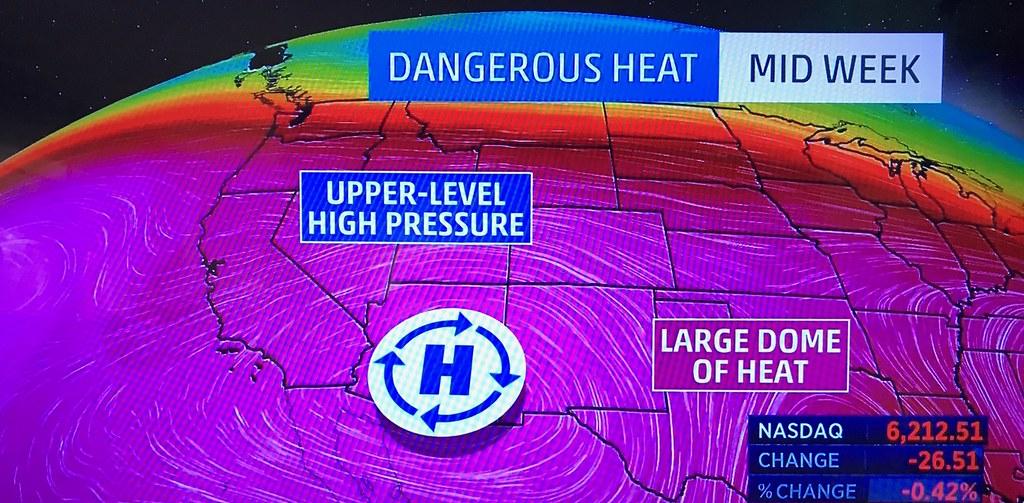Addressing Extreme Heat in the Workplace: Biden Administration’s New Proposal
In response to the scorching temperatures affecting tens of millions of people in the U.S., the Biden administration has put forward a new regulation aimed at tackling the issue of extreme heat in the workplace.
The proposed rule comes at a time when heat advisories are prevalent across the country, highlighting the urgent need for measures to safeguard workers from the health risks posed by excessive heat.
Importance of Addressing Heat in the Workplace
The escalating climate crisis has led to a significant rise in extreme heat events, making it vital for employers to prioritize the safety and well-being of their employees. With the frequency and intensity of heatwaves on the rise, the impact on workers’ health and productivity cannot be understated.
Recognizing the need for enhanced workplace protections, the Biden administration’s proposed rule seeks to establish clear guidelines for employers to follow in order to mitigate the risks associated with extreme heat exposure.
Proposed Measures to Safeguard Workers
The proposed regulation entails provisions such as mandatory rest breaks, access to shade, and adequate hydration to ensure that workers are adequately protected from the adverse effects of heat stress. Additionally, the rule would require employers to implement heat illness prevention programs and provide training to employees on recognizing and responding to heat-related illnesses.
By enacting these measures, the administration aims to create a safer and healthier work environment for individuals working in industries that are particularly vulnerable to heat-related hazards.
The Economic Cost of Inaction
Failing to address extreme heat in the workplace not only jeopardizes the well-being of workers but also carries significant economic repercussions. Heat-related illnesses can result in decreased productivity, increased healthcare costs, and a higher incidence of workplace accidents, all of which have detrimental effects on businesses and the economy as a whole.
It is therefore imperative for employers to proactively implement measures to protect their workforce from the escalating threat of extreme heat.
Looking Ahead: A Step Towards Resilience
As the climate crisis continues to unfold, the Biden administration’s proposal serves as a crucial step towards building resilience in the face of extreme heat events. By prioritizing the safety of workers and promoting proactive measures to address heat-related risks, the proposed rule underscores the administration’s commitment to safeguarding the interests of both employees and businesses.
Ultimately, the proposed regulation not only aligns with the administration’s broader climate agenda but also signals a proactive approach to ensuring the well-being and productivity of the workforce in the face of escalating climate challenges.
 Taking Action: Biden’s Plan to Keep Workers Safe from Dangerous Heat in the Workplace
Taking Action: Biden’s Plan to Keep Workers Safe from Dangerous Heat in the Workplace
Learn about President Biden’s plan to protect workers from extreme heat in the workplace and the steps being taken to ensure their safety.
Introduction
With the increasing occurrence of extreme heatwaves, the safety of workers in outdoor and indoor environments is of utmost concern. President Joe Biden has recognized this issue and has unveiled a plan to protect workers from dangerous heat in the workplace. This comprehensive plan addresses the need for better protections and safety measures to safeguard workers from the adverse effects of heat stress.
Understanding the Risks
Extreme heat in the workplace can lead to heat-related illnesses such as heat exhaustion, heatstroke, and dehydration. Workers exposed to high temperatures, especially those in industries such as construction, agriculture, and manufacturing, are at a higher risk of suffering from these conditions. It is imperative to implement measures that mitigate these risks and ensure the well-being of workers.
Biden’s Plan
President Biden’s plan to keep workers safe from dangerous heat in the workplace includes the following key initiatives:
- Developing enforceable standards for indoor and outdoor heat exposure
- Providing training and resources for employers to recognize and prevent heat-related illnesses
- Expanding access to cool and shaded areas for workers
- Increasing awareness and outreach efforts to educate workers about heat-related risks
- Enhancing enforcement of existing workplace safety regulations
Benefits and Practical Tips
The implementation of President Biden’s plan offers numerous benefits for both employers and workers:
- Improved worker safety and reduced risk of heat-related illnesses
- Enhanced productivity and efficiency in the workplace
- Positive impact on employee morale and well-being
Employers can take practical steps to protect their workers from dangerous heat, such as:
- Providing ample breaks and access to drinking water
- Implementing a heat illness prevention program
- Utilizing cooling technologies and equipment
- Using appropriate personal protective equipment (PPE) for heat exposure
Firsthand Experience
Workers who have experienced the effects of extreme heat in the workplace can attest to the importance of protective measures. Employers who have prioritized the safety of their employees have seen a significant reduction in heat-related incidents and an overall improvement in working conditions. It is crucial for businesses to take proactive steps to safeguard their workforce.
Case Studies
Several organizations have successfully implemented heat safety protocols and have witnessed positive outcomes. These case studies serve as examples for other businesses to follow and showcase the effectiveness of prioritizing worker safety in high-temperature environments.
Conclusion
President Biden’s plan to keep workers safe from dangerous heat in the workplace is a crucial step towards ensuring the well-being of workers across various industries. By implementing enforceable standards, providing training and resources, and increasing awareness, businesses can create safer environments for their employees. It is essential for employers to prioritize heat safety measures and take proactive steps to mitigate the risks associated with extreme heat in the workplace.


